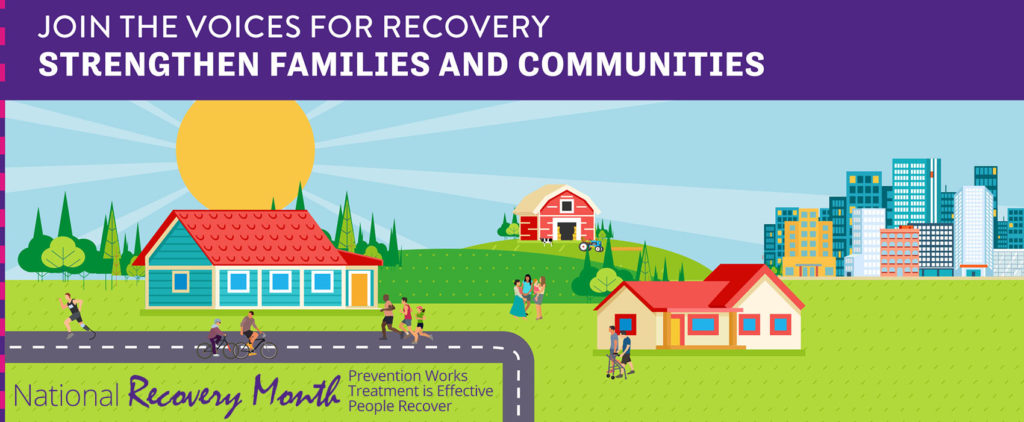
According to the Substance Abuse and Mental Health Services Administration (SAMHSA), “National Recovery Month (Recovery Month) is a national observance held every September to educate Americans that substance use treatment and mental health services can enable those with a mental and/or substance use disorder to live a healthy and rewarding life.
Recovery Month celebrates the gains made by those in recovery, just as we celebrate health improvements made by those who are managing other health conditions such as hypertension, diabetes, asthma, and heart disease. The observance reinforces the positive message that behavioral health is essential to overall health, prevention works, treatment is effective, and people can and do recover.
There are millions of Americans whose lives have been transformed through recovery. Since these successes often go unnoticed by the broader population, Recovery Month provides a vehicle for everyone to celebrate these accomplishments. Each September, tens of thousands of prevention, treatment, and recovery programs and facilities around the country celebrate National Recovery Month. They speak about the gains made by those in recovery and share their success stories with their neighbors, friends, and colleagues. In doing so, everyone helps to increase awareness and furthers a greater understanding about the diseases of mental and substance use disorders.”
Substance Use Prevention
Risk of drug abuse increases greatly during times of transition. For an adult, a divorce or loss of a job may lead to drug abuse; for a teenager, risky times include moving or changing schools. In early adolescence, when children enter middle school, they face new challenges including being exposed to drugs such as alcohol and cigarettes. In high school, teens may encounter social activities where drugs are present and experience increased peer pressure. College is a time where many young adults seek new experiences and want to try in things; this may include experimenting with drugs. National data shows that children start experimenting as early as age 12; drug prevention is crucial during this time in a child’s life.
How to Start the Conversation?
Remember, you might know all of the facts and that’s ok. Just by starting the conversation with a loved one can create a positive foundation for someone who is thinking about using or already using.
Be sure to:
- Talk early and often- Do not wait until a situation presents itself.
- Correct misconceptions together- Kids and adults who aren’t properly informed are at greater risk of engaging in unsafe behaviors and experimenting with substance use.
- Be a role model- Your attitude about drugs and behavior can influence others especially a child.
- Be realistic- Although the ultimate goal is for loved ones not to abuse drugs, we must also prioritize safety. If someone is using drugs be realistic in situations such as drinking and driving, let them know they can call for a ride, etc. with no questions asked.
If you or someone you know is struggling with a drug or alcohol problem there are people that can help! There are a variety of different types of help available such as counselors, medical professionals, and treatment centers. Reaching out for help is the first step and the most important!
Signs of Drug Abuse & Addiction
- Change in appetite or sleep patterns
- Decline of personal hygiene or appearance
- Frequent, unexplained bruises or other injuries
- Skipping class or declining grades
- Sudden change in relationships and friends
- Missing money / stealing
- Sudden mood changes – irritability or outbursts
- Appearing withdrawn, anxious, or paranoid
Quick Links
DHD#10 – Substance Use Prevention – Parents/Grandparents/Adults
DHD#10 – Substance Use Prevention – Teens
www.drugabuse.gov
www.michigan.gov/mentalhealth-addiction-help
https://findtreatment.samhsa.gov/

